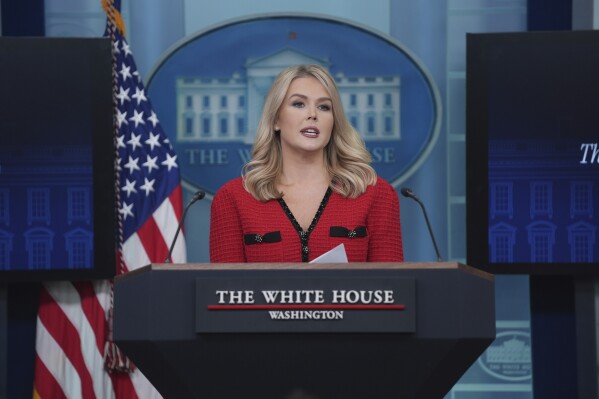Washington, D.C. – In a significant escalation of trade policies, US President Donald Trump announced on Friday that the United States will impose tariffs of 25% on Mexico, 25% on Canada, and 10% on China, effective Saturday. The move, confirmed by the White House, marks a dramatic shift in the administration’s approach to international trade and its relationships with key allies and economic rivals.
However, in a late Friday update, President Trump indicated that Canadian oil would face a lower tariff rate of 10%, which could take effect later, on 18 February. The president also hinted at future tariffs on the European Union, accusing the bloc of failing to treat the US fairly.
The White House defended the tariffs on Canada and Mexico, linking them to broader concerns beyond trade. White House press secretary Karoline Leavitt stated that the duties were a response to “the illegal fentanyl that they have sourced and allowed to distribute into our country, which has killed tens of millions of Americans.”
President Trump has repeatedly framed the tariffs as a necessary measure to address two critical issues: the influx of undocumented migrants across US borders and persistent trade deficits with neighbouring countries. “These are promises made and promises kept by the President,” Ms Leavitt emphasized during a White House news briefing on Friday.
The announcement comes amid heightened tensions with China, a long-standing target of Trump’s trade policies. During his election campaign, Trump had threatened to impose tariffs of up to 60% on Chinese-made products. However, he delayed immediate action upon returning to the White House, instead directing his administration to conduct a thorough review of the issue.
Since 2018, US goods imports from China have plateaued, a trend economists partly attribute to the series of escalating tariffs imposed during Trump’s first term. The new 10% tariff on Chinese goods is expected to further strain relations between the two economic powerhouses.
The decision to impose tariffs on Canada and Mexico, key partners in the US-Mexico-Canada Agreement (USMCA), has raised concerns about potential retaliatory measures and the broader impact on North American trade. The lower tariff rate on Canadian oil suggests a partial concession, but the move is likely to provoke criticism from industry leaders and policymakers in both countries.
As the US prepares to implement these tariffs, the global economic community is bracing for potential disruptions. The prospect of future tariffs on the European Union adds another layer of uncertainty, with the bloc likely to respond firmly to any measures it deems unfair.
President Trump’s latest trade actions underscore his administration’s commitment to an “America First” agenda, even as critics warn of the risks to global economic stability and diplomatic relations. With the new tariffs set to take effect imminently, the world watches closely to see how affected nations will respond.

















